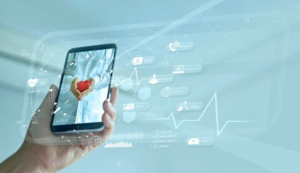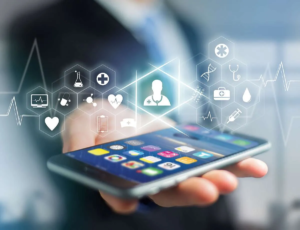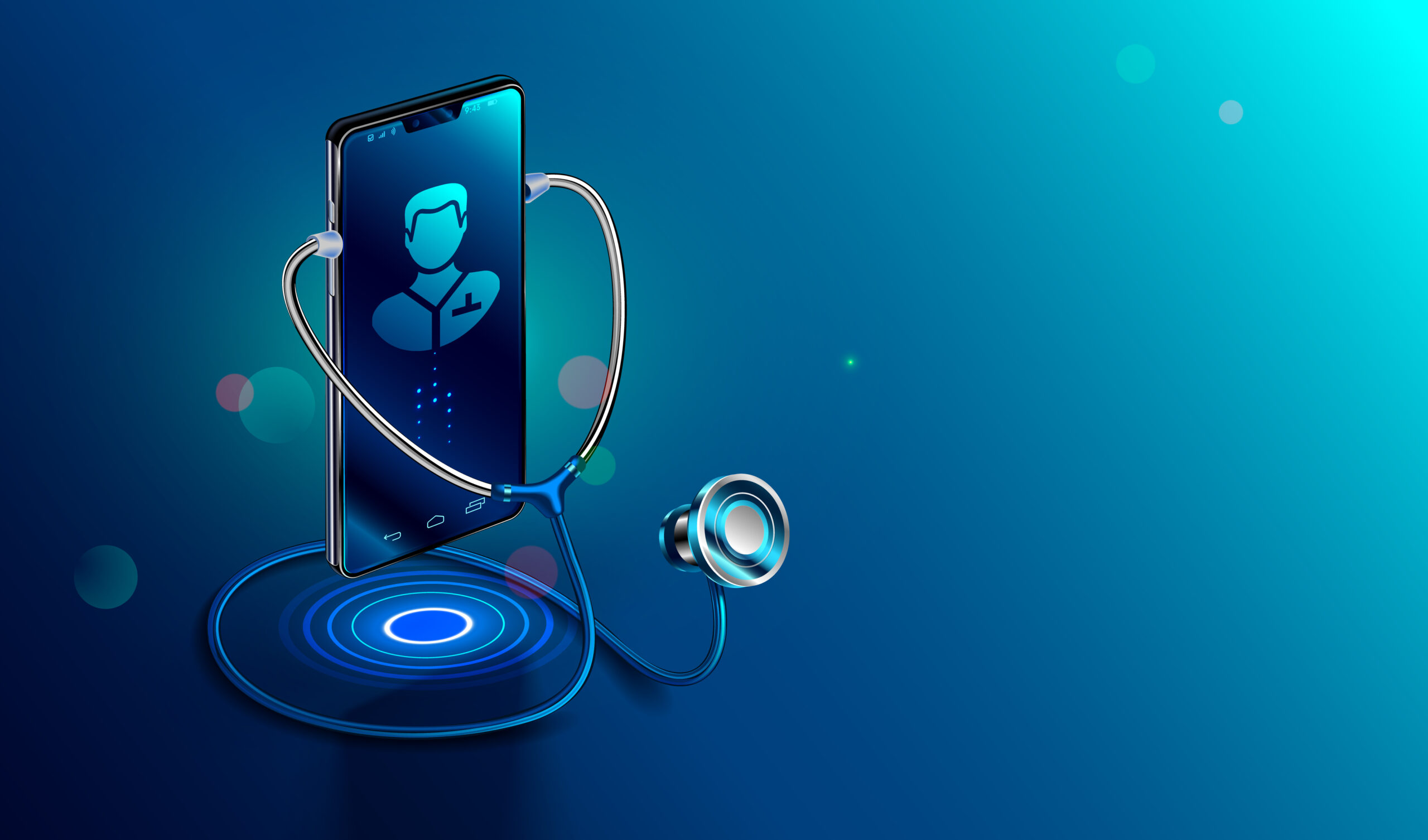As healthcare technology advances, a major revolution is bound to take place. Trends in healthcare technology have reduced relapse rates in hospitalizations and rates of visits to the emergency department. On the contrary, other innovations have brought convenience to the lives of doctors, patients, and hospital staff. The most useful one is the mobile healthcare app.
Advantages of mobile apps in healthcare:
Effective Consultation:
Injuries caused by road accidents and sports are common and immediate action can save lives. The app allows you to share images of your injured area and receive practical advice from qualified medical professionals before an ambulance arrives. On days when a particular medical issue is affecting your life, you can use the Healthcare mobile app to quickly consult a doctor.
Reduce Costs:
By leveraging mobile healthcare apps, you can significantly reduce costs. Patients can access post-discharge communications, take advantage of interactive symptom tracking, and more from the comfort of their homes. This holds for major chronic diseases like diabetes and cancer. Additionally, mobile healthcare apps can also guide patients by providing them with up-to-date wait times and the nearest location of urgent care centers.
Mobile Healthcare App Trends:
Better Use of Patient Data:
In the information age, every smartphone user unwittingly generates data. Mobile healthcare apps use patient-generated health data (PGHD) to enable them to lead healthier lifestyles. Such data includes symptoms, treatment history, habits, etc. Analysis of this data reveals patterns that can significantly reduce the cost of clinic visits.
Connected Services:
Companies that want to invest in mobile healthcare app development can improve the ecosystem of services they offer to their end users. A connected services ecosystem complements a partnership model that strengthens the product’s value proposition. For example, depending on the patient’s history, a healthcare mobile app can offer two options such as consulting a nearby doctor and purchasing a related health insurance package.
Omnichannel Support:
Healthcare mobile apps provide multiple channels for businesses to provide support. Instant messaging features allow patients to ask questions. Similarly, you can integrate the SOS signal feature to alert your friends and family. Video chat options allow patients to communicate in near real-time.
Smart Wearables:
Healthcare needs to do a lot to improve patient experience. Smartwatches offer a unique opportunity for businesses to go the extra mile. By leveraging the capabilities of the smartwatch’s built-in hardware, healthcare mobile apps can sync and optionally share data with medical professionals.

Different Types of Healthcare Mobile Apps:
Doctor Directory and Booking App:
Doctor directories and booking apps are useful for two purposes: finding and booking a suitable doctor near you. You can apply various search filters to narrow down and display relevant results. For example, you may want to search for nearby doctors with more positive reviews or with expertise in a particular field.
Mobile apps can also give you the ability to schedule appointments with your doctor. This feature can automatically check the doctor’s availability based on scheduled consultations. Consultations can be done offline, but additional arrangements can be made for video consultations. Consultation fees can be paid online using payment gateways. Once a consultation has been done, those seeking the consultation can leave a review.
Health Tracking and Medication Tracking Apps:
Health tracking and medication tracking apps provide health insights. Fitness tracking can be extended to monitor data collected from various sports activities such as swimming, jogging, and general exercise. The app can also remind users to take certain medications using push notifications from the mobile app. It can also provide a separate section for women to monitor their health. Data on parameters such as menstrual flow, ovulation, etc. can also be added to the mobile app and used during consultations with your doctor.
Diet and Fitness Healthcare App:
To increase added value, nutritional information from barcodes on food packages can be recorded with additional customization. This saves manual effort.
You can add additional sections to your diet and fitness video mobile app. However, updating this section requires a clearly defined content strategy. Ideally, such a mobile app could offer videos on healthy recipes, low-calorie diets, high-protein diets, tips on fitness-related topics, and more.

Important Features of Healthcare Mobile App Development:
Reporting and Analytics:
Data plays a key role in healthcare. The numerous features of the healthcare mobile app allow you to keep track of medications, allergies, and more. The data generated by the process can be displayed in a visually appealing way to provide an overview to your app users.
Order Medications:
Mobile healthcare apps can track patient medications and share notifications to place orders when supplies are low. This functionality is also based on the integration of payment gateways and an optional digital wallet.
Get Clinical Report Data:
You can integrate the Lab Results feature to view statistics for various lab tests. This feature may require a partnership with a healthcare provider to get data through an application programming interface (API). The results obtained can be instantly recorded in the mobile healthcare app.
Factors to Consider Before Developing a Mobile Healthcare App:
User Experience:
Most people take their health very seriously and easily get frustrated when they face problems along the way. The user experience of the mobile healthcare app is designed to reduce the negative impact of problems on patients. It is important that the user experience is carefully considered and thoroughly researched, and healthcare apps should provide the best experience for both patients and doctors.
Additionally, many users of mobile healthcare apps may face issues such as blindness, hand injuries, etc., so accessibility features need to be carefully planned.
Application Programming Interface:
By leveraging APIs, mobile healthcare apps can bridge the gap between new features and convenience. There are many options for adding new features to your mobile healthcare app using APIs. Two standard options are Apple’s HealthKit and Google Fit SDK.
Minimum Viable Product:
Healthcare mobile apps can include many features. It is important to ensure that your app users appreciate such features. A minimum viable product development approach can help improve ROI. In a minimum viable product, the complete set of features is added over and over again.
Healthcare mobile apps that are expected to provide features like online ordering and booking, etc., can be built in multiple iterations. For example, in the first iteration, you can develop a booking functionality. In the next iteration, after analyzing the target user response, we can also provide an online consultation service.
Data Protection:
Medical and health data can be misused in several ways. Therefore, mobile healthcare apps need to be developed following modern and secure coding practices. Some facts prove the reliability of Android and iOS platforms. Although both platforms are backed by tech giants, the need to protect healthcare data remains.
Mobile healthcare app developers need to follow secure practices such as encrypting data stored on servers and opting for end-to-end encryption, which is common in modern instant messaging mobile apps.

Mobile Healthcare App Development Process:
Understanding the Problem to be Solved:
Medical mobile apps for specific cases, on the other hand, do not have millions of downloads. This is also the main reason why there are so many fitness apps out there. Another reason why there are so many fitness mobile apps out there is the lack of research. The idea of your healthcare mobile app should be based on the needs of your operational field. If there are more people with diabetes in your area, it makes sense to create a mobile app to make their lives easier.
Know Your Target Audience:
You can launch a healthcare mobile app that provides solutions and provides convenience. Healthcare regulations vary from country to country. Healthcare mobile app functionality, data processing, and user experience may vary by region.
Healthcare Mobile App Development:
Without thorough research into the needs of target users, you cannot know for sure what features to develop. This is also why it is recommended to use agile methods to add each feature or set of features after learning about user behavior. With each iteration, the most important thing is to test the functionality of your mobile app and listen to the market.
Each iteration of the Agile methodology allows you to release new and improved versions of your healthcare mobile app. This approach reduces the risk of making big mistakes and increases the success rate of your healthcare mobile app in a competitive business environment.
Reach out and engage with your audience:
Measures include guest blogging to promote your app, implementing App Store Optimization (ASO), asking users to leave reviews after using your mobile app, and inviting nominations for Best App awards. This includes reaching out to relevant influencers on social media to mention your app.
One-Stop Shop:
Healthcare mobile apps should not be treated as a single entity. Rather, it should be treated as an integral part of your business. To move an idea from the planning stage to the marketing stage, a healthcare mobile app development company needs different teams and departments.
For example, a team of business analysts can point you in the right direction for fulfillment. Our team of UX experts can share their knowledge of mobile app design. So, partner with a solution provider that can provide you with comprehensive healthcare mobile app development services.
Number of Happy Customers:
A business can have over 1,000 customers. But how many of them are still satisfied with your business? There are multiple reasons why businesses have long-term satisfied customers. The two most important reasons are:
- Authority: Businesses should openly share knowledge about the changing technological environment and innovations with customers. By doing so, our customers can act quickly and develop a competitive advantage.
- Policies: Most prospects do not appreciate company-centric policies. On the other hand, customer-centric policies give potential customers the necessary freedom and encourage them to become long-term customers of the business.
Check Portfolio:
When reviewing your portfolio, look at the mobile app and see if all the small details have been taken into account.
Why Healthcare App Development is Essential for Businesses?
Healthcare software development or healthcare app development serves several purposes. It streamlines hundreds of healthcare management and administrative functions, including enabling people to efficiently track and trace health issues, easily access healthcare information, and maintain medical records.
Healthcare mobile app development has the following objectives:
For doctors and healthcare professionals: It helps with patient tracking, early disease detection, staff management, appointment scheduling, and more. Additionally, it helps medical professionals consult with patients, make diagnoses, and prescribe medications through video and audio conferencing.
For users: Track your health, get medical recommendations, get medical services at home, track your fitness level, measure your heart health, and help schedule appointments.
Technologies Used for Healthcare App Development:
App developers are increasingly leveraging emerging technologies for healthcare app development. Integrating these technologies can improve processes, enhance patient care, automate administrative tasks, and increase efficiency.
Cloud Computing:
Cloud computing for healthcare applications has benefits such as health data analytics, data security, and allowing users to access information anytime, anywhere.
Blockchain:
Blockchain in healthcare is a major trend in mobile app development that helps manage EMR and EHR data, conduct research, and improve hospital and insurance billing processes. That’s why more and more hospitals are creating apps that use blockchain technology to manage patient records and conduct secure transactions.
Here are some of the most important features that enhance the functionality of your healthcare app and provide maximum engagement.
Challenges of Medical App Development:
Despite the growing size of the healthcare app market, many medical professionals think twice before starting their healthcare app development journey. Why are there many challenges that cause mobile healthcare solutions to fail? Understanding these challenges will give you a clear idea of why healthcare companies fail and help you develop modern solutions that will become big hits in the market.
Find out why healthcare apps fail to make a lasting impact on the lives of doctors and patients.
Not focusing in detail on one domain:
When doctors and patients install healthcare apps, they are often looking to solve a single problem rather than multiple problems. Therefore, healthcare apps that solve a single point from the inside out are more likely to succeed, rather than apps that solve many problems at a surface level.
Non-compliance with the law:
Multiple compliance agencies govern operations in the mobile health domain. Complying with industry-specific regulations can be daunting, but lack of them can be one of the main reasons why healthcare professionals do not trust their apps. Lack of FDA approval, HIPAA-compliant badges on the app home screen, or screenshots used in the App Store or Play Store are turning off stakeholders.
Lack of Security:
Security is one of the first considerations for all healthcare organizations, but only a few apps take this task seriously. There are millions of stories of patient data being hacked or lost due to insecure storage infrastructure. While the above-mentioned compliance solves the problem to some extent, the mobile app development company must implement all security measures while developing the app.
To overcome these challenges, businesses must partner with a reliable and experienced hospital mobile app development company.
